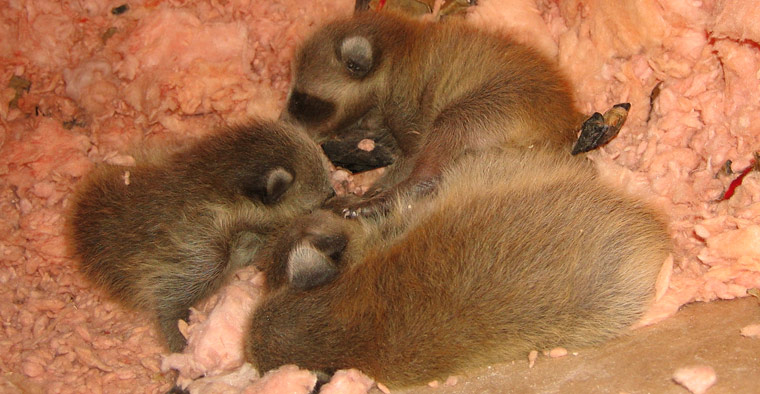-
info@aaanimalcontrol.com
Call us for help in your town
Humane Wildlife Education
What animals like to live in attics?
Need wildlife removal in your hometown? We service over 500 USA locations! Click here to hire us in your town and check prices - updated for year 2020.
INSERT TEXT
The attic of your home is likely a place you spend very little time. In most homes, this location is designed in such a way that you usually have to go through some kind of hatch in the ceiling to be able to get inside of it. Because of the near inaccessibility of it, most homeowners use it for nothing more than a storage place where they keep blankets, clothing, or memorabilia that they want to hang onto but don't necessarily need to gain access to on a regular basis.

Because of this relative isolation, many wild animals find an attic to be the ideal location where they can create their own home. It not only allows them a rather isolated place where they can live in relative anonymity, but it also protects them from the vast majority of predators that would hunt them in the wild, and gives them a warm location to build a nest, sleep, and breed.
Once inside your home, they can be quite destructive, depending upon the animal that is in your attic. This is important to know, because it will help you to determine what kind of action you need to take to remove the animal. This may make you wonder what animals like to live in attics?
If the truth be told, every one of them would like to live in your attic. As mentioned before, it does provide the ultimate opportunity to be able to have an isolated area that is warm and safe to live in. Most animals would see this as the perfect spot, but gaining access into your attic is an entirely different story. Thus, the question that will be answered will be one that gives you knowledge that makes sense.
For example, a fox could find your attic to be a great place to live. However, this animal is not going to find an entryway into your attic. It is too large and your attic is too high up for it to be able to reach. Thus, it wouldn't make sense to even consider it.
However, there are many animals that can easily get into the attic area should there be a hole, loose board, or crack in your siding or roof. Birds and bats are two of the best examples. It doesn't take much for them to be able to gain access, because they are able to fly and can quickly locate places that afford them the opportunity to get into your home.
Another animal that is commonly found within the attic of people's homes is the squirrel. Squirrels can climb onto a roof or come across a wire and get into your attic through some kind of gap that they find in the siding. You are also likely to find such animals as rats and mice living in your attic, because they can easily climb up through the walls to get into this location.
From there, you may occasionally find such things as raccoons, possums, and other small critters, but these are fairly rare.
For more information, you may want to click on one of these guides that I wrote:
How To Guide: Who should I hire? - What questions to ask, to look for, who NOT to hire.
How To Guide: do it yourself! - Advice on saving money by doing wildlife removal yourself.
Guide: How much does wildlife removal cost? - Analysis of wildlife control prices.
Animals in the attic - read about the common species.
Noises in the attic - how to identify critters by their sounds.


















